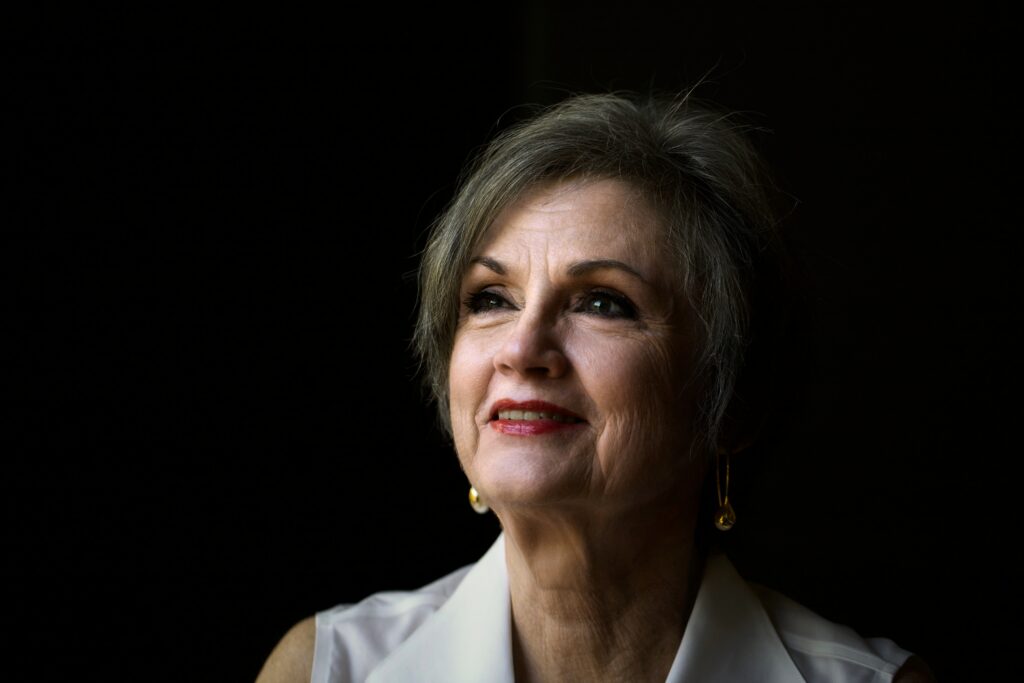
Markovich Consortiums
Consortium FAQ
You may not know how this consortium thing works or what it is about. Look below for the details you need to form your decision.
Join a consortium
Many are the expenses of a composer from start to finish: equipment, upgrades, time spent composing, editing, engraving, and creating sheet music to travel expenses, marketing, and consultations. Why not add your support to the creation and release of a new work by Judith Markovich? Let’s rid the world of “starving artists”!
Benefits:
By becoming a co-commissioner of a Markovich work, you will receive:
• A first edition PDF score and parts given only to co-commissioners (available after final edit)
• Exclusive rights to perform a newly created piece for one year after delivery and before the first premiere, unless otherwise contracted.
• A mention of your name permanently added to the list of co-commissioners

Who can join
Anyone at any age or income level can become a member of a consortium. Look below at the section called Why commission a new work? and read about the exciting reasons to pitch in.
Not to mention the benefits of watching behind closed doors the creation in progress!
Be a part of a legacy of new music generations down the line.
How?
Search the list of current consortiums and pick your favorite.
Then head to the MusicShop, search for Consortium, and set your own price.
Or contact Markovich and discuss your exciting idea.

Want true inclusion?
Composer Judith Markovich
You will be commissioning Judith Markovich, an extraordinarily talented, emerging woman composer, a graduate of The Juilliard School as clarinetist. Her performing and conducting experience now enhances her novel compositions. What you may not realize is that Markovich is also one of the rare few who began learning to compose in their senior years, yet her music is fresh and current. If you value true inclusion, then add late starter seniors. Think of the inspiration this brings the young and the aging in audiences.
Current Consortiums
Crossroads Viola Concerto No. 2 commissioned by Brazilian rising star, Amaro Dubois
Oh, my son…. about the epidemic of suicide, commissioned by David Stern (rehearsal and travel expenses only)
Wildflower about addiction commissioned by David Stern (rehearsal and travel expenses only)
There are many reasons someone might commission a new work, including today’s push for diversity and inclusion. Women composers rank in the top of that list as historically excluded and undervalued. Tides are changing for women, but slowly. Be a game changer.
“Pity me not,” says Markovich. She cringes at the thought of being chosen only because of her gender and age. She’d rather be selected from a list of possibilities because her work is more than worthy of your investment.
Many people have commissioned works without realizing it. The word “commission” is not as intimidating as you might think. We commission a contractor to remodel our bathroom or a website designer to create a website. Commissioning merely mean the act of hiring someone to do something that requires their special set of skills.
The composer and the performer will create something unique that no-one else could. Your commission enables them to work and bring something lasting to life that can be shared and re-shared with your name on it.
A consortium member might want to:
- Add a new work to the underrepresented concerto repertoire for viola. This is one of Brett Deubner’s major passions. He discovered Judith in 2020, had good experiences performing most of her viola works in the past, and has recorded “Remember” and “Three Miniatures.” The premiere of a chamber ensemble version of Cornerstone with Brett as violist is already slated for the 2023-24 season in Europe. Interest is building. Maybe you want to be a part of the excitement?
- Partner with an experienced virtuoso violist internationally favored by conductors. Have your desires respected and met with the exact new piece and soloist you need.
- Partner with other orchestras who have first rights to premiere Cornerstone.
- Obtain a personal video chat with the composer/soloist for a marketing plan.
- Support new artistic works or a specific orchestra to raise awareness of diverse artists in your community. Businesses that support baseball teams also feel a sense of pride in their support of the arts. So do friends and arts organizations.
- Diversify an orchestra series. Viola concerti bring well-deserved diversity to programs. Though J. S Bach played the violin, his son (C. P. E.) said, “As the greatest expert and judge of harmony, he liked best to play the viola, with appropriate loudness and softness.”
- Work with a new, living composer on a premiere. Not everyone has one-on-one access to insight from the composer. How special is that! This particular concerto was written with an inspirational story poem as its foundation, a poem that heals wounded hearts and inspires lavish love. The composer will show you what to listen for.
- Be the first to know what’s coming and have private access to updates no-one else has.
- Last but not least, use a premiere to honor someone on a special occasion or as a fundraiser.
A consortium supports the composer financially so all of this is possible.
Orchestra budgets are stressed. So is the composer’s, who will sometimes put in hundreds of hours. She can’t work for free and feed her family. Born in the Volunteer State, Markovich likes to be generous, and she works with the lead commissioner to set her minimum. Because you are getting her early in her career, her total commission fee is lower than the norm, but fear not. People love her music. Membership in a consortium is open until the minimum is met.
Markovich will have a Lead Commissioner who will have the privilege of the world premiere. The Lead will help recruit other members if possible. He/she will collect the funds and give the composer 1/2 upfront and the other 1/2 when the work is complete. A lead commissioner usually pitches in 2-3 times what the other members do. If this is something that interests you, please contact Markovich.
Chamber Music fees range from $2,000 to $10,000. Concerti or choral and orchestral works range from $20,000-$40,000.
If you think those fees are high, consider this: at only $50/hour x 20 hours/week comes to $1,000. Four months is 16-17 weeks. Can you hire a professional for less? Markovich, a generous soul, does pro bono work in certain situations and works within each individual’s budget, depending on the project.
If you want to find a way to give something that lasts and benefits society, why not bless Markovich with your generosity?
As with so many other things in life, figuring out funding resources can be the trickiest part of embarking on a project. That said, there are a lot of options and I think it pays to research what’s out there and think outside of better-known resources.
Out of Pocket
This is by far the easiest way to get things squared away. It typically happens in one of these scenarios.
- Find an individual who wants to commission a premiere for your orchestra to celebrate an event or as a gift. This kind of commissioning isn’t too terribly common, though we’d love to make it so.
- If you aren’t a conductor but music lover, you might find combined support from friends and family. Fundraiser campaigns work as well. Your name will go in the program and on the inside cover just the same.
- There is an organization that helps orchestras with some expenses if they program a woman composer.
Institutions
Consortiums happen is a lot more often now than in past few years. Splitting the cost helps everyone bear the expense, unless you want sole rights to premieres for two years. I’m excited to see consortiums bringing much needed relief to stressed budgets.
High-profile competitive grants are great though difficult to obtain. That said, they’re absolutely worth a look. The Women’s Philharmonic Advocacy is one. “We celebrate the vast range of orchestral music by women, and encourage orchestras to program it! All around us people are suddenly aware of long-ingrained sexist practices, and questioning their entrenched status. We work to reveal the centuries of music by women, much of it lost to history due to gender bias – and help provide information and resources to make that music available.” https://wophil.org
Sure! I’ve found it fascinating to watch the changes as my artist and musician friends add this and take away that as they create. I’ve created a collaboration blog for this commission for consortium members. Once the membership is complete, it will become private for members only, but anyone can peek in until then. This will give you a deep dive into the composition process and an inside look at how you might want to interpret it. You might even get a good laugh from a crazy idea I tossed along the way.
Everything about the piece (drafts, program/performance notes, etc.) will be in the same place for your convenience. You can give immediate feedback no matter where you are in the world.
I’ve been working closely with Brett on the concept and drafting of this concerto, as well as other seasoned instrumentalists (string players, harpist, percussionists) more knowledgeable than I. Sometimes Brett and I meet on Zoom or Messenger so he can demonstrate something. Recently, I’ve been working on a way to portray the stone cutters chipping rock and how to notate that without being gimmicky. My husband dragged a chisel and metal hammer out of the garage and we played with sounds. But it wasn’t until I spoke with a conductor, who knew someone who had experimented with metallic sounds, that I found the solution within minutes. Brake drums! Duh! I had used them in teaching years ago and forgotten. Yesterday, I put a call out for sample sounds of brake drums.
What you just read is the type of discussion you’ll find on the consortium blog, or you may find questions about technique/notation/balance/substitutions. If you want, we can Zoom or do a video on Messenger so you can show me exactly what you are talking about in the score. I may be able to come up with some new ideas that eventually made their way into this piece while it is still open for small changes. At any rate, everyone will feel like they are part of the process, and that kind of mutual respect is important.
A dedicated private consortium blog will be set up for you to follow.
Legal stuff? Yep, but we’ve got you covered. We’ll send you an official commission agreement, which you review and approve before signing. Here are the basic concepts:
- Deadline
- – The agreement will include a deadline for completion of the piece as well as a range of dates during which the performer is available.
- Payment schedule
- – Typically, the Lead Commissioner pays the first half of the commission fee from the consortium kitty within a few weeks of signing the agreement. The second half is due when the piece is finished.
- Copyright
- – The composer keeps the copyright.
- Performance Exclusivity
- – If contracted, there will be a period of exclusivity during which only the commissioners can perform the commissioned work. This could be a one or two-year period. Also, the Lead Commissioner has exclusive rights to the world premiere. The consortium members then have the exclusive right to perform a local or regional premiere before anyone else within that period of time.